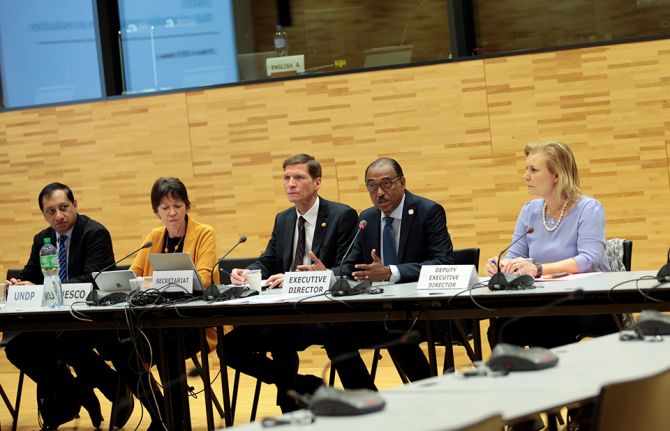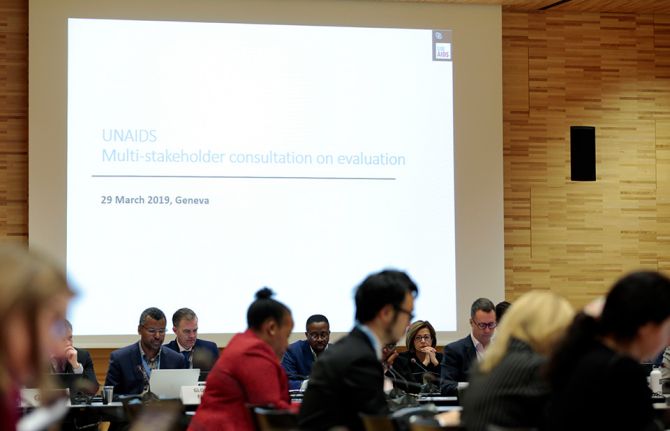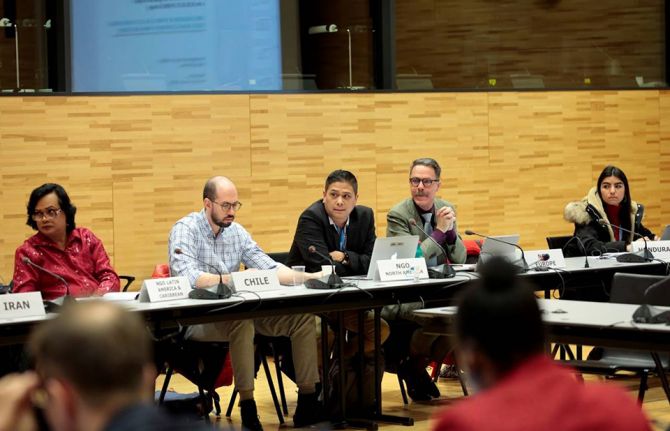



Feature Story
Learning lessons on evaluation
02 April 2019
02 April 2019 02 April 2019“The fact that something is hard to evaluate doesn’t make it impossible,” said Anna Downie, who leads on strategic information at Frontline AIDS. Reflecting on the challenge of evaluating advocacy, coalition-building, generating new partnerships and increasing the capacity of communities, she added, “To be successful, it is essential to allow space for innovation, to hear from communities about what is important to them and involve them from the outset so that you are looking for the same results and the evaluation is truly useful.”
Ms Downie was one of a number of experts who gathered in UNAIDS headquarters on 29 March in Geneva, Switzerland, for UNAIDS’ first consultation on evaluation. With the aim of informing the new UNAIDS evaluation policy, to be presented to the UNAIDS Programme Coordinating Board (PCB) meeting in June, the participants shared lessons they have learned while working on evaluation.
“Generating evaluations that are independent, credible and useful is the foundation of our work” said Susanne Frueh, the Chair of the United Nations Evaluation Group and Chair of the consultation.
The central role of countries in supporting a strong and independent evaluation function at UNAIDS was highlighted. The need for dedicated funding for evaluation, for the evaluation function to be independent and for transparency in the appointment of the head of the evaluation function were highlighted. The credibility and expertise of the staff of the office of evaluation, the establishment of an independent advisory committee and the need to protect the office from becoming politicized were also noted.
Michel Sidibé, UNAIDS Executive Director, highlighted the importance of the evaluation function. “We will not be able to transform or sustain our gains in the AIDS response if we don’t have clear learning from what we are doing. We will not be able to quicken the pace of action and help countries to scale up if we are not able to share our work and lessons learned,” he said.
The participants agreed that it is essential not only to ensure a strong gender and equity element in evaluations but also to measure what works and identify results in the areas of gender and human rights, which are cornerstones of the AIDS response. Triangulating data on human rights with civil society is a good way of ensuring that the evaluation provides a full picture. The importance of assessing the support provided by UNAIDS when major donors transition from countries was also highlighted.
In the medium to long term, the participants highlighted the need to build the capacity of young evaluators and to consider working with the growing number of evaluation companies from the global South.
The UNAIDS policy on evaluation is to receive a final round of comments from stakeholders soon. It will then undergo a peer review by the United Nations Evaluation Group before being presented to the UNAIDS PCB for endorsement.



